“The SDR is a good start, it recognises the need for real war fighting and capability but there is a long way to go.”
Air Marshal (Retired) Phil Osborn CBE
15 July 2025
Is the UK ready to deliver on its defence ambitions? Experts assemble at King's to discuss
On Monday 16 June, air, space and defence professionals gathered at King’s College London for the Freeman Air and Space Institute’s (FASI) annual summer event, ‘Defence Question Time’.
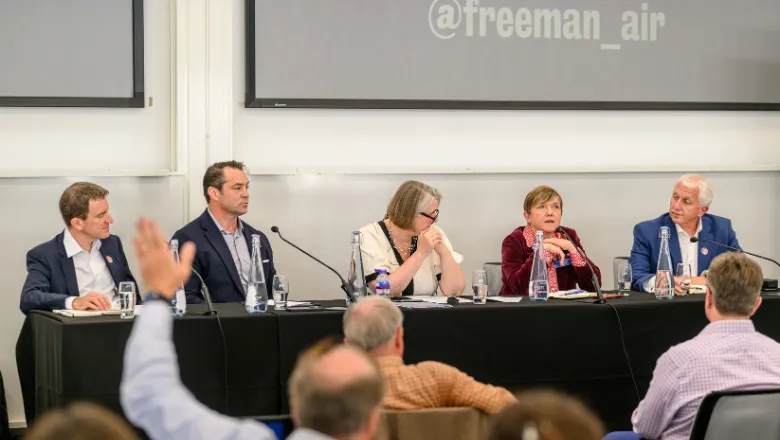
Former Defence Correspondent and BBC broadcaster Caroline Wyatt chaired the panel discussion and welcomed leading voices from across academia, industry and government. Panellists included: FASI Co-Director Dr Sophy Antrobus; Professor of Practice in History and Strategy, Managing Director of Strategic Initiatives, Senior University Advisor and Security & Defence PLuS lead at Arizona State University (ASU) Ryan Shaw; Vice President of Space Digital UK, US & Asia at Airbus Richard Budd; and Air Marshal (Retired) Phil Osborn CBE, Royal Air Force.
Panellists were questioned by both an in person and online audience on the current issues facing the UK defence and security sector and how, as we look to the future, what ambitions, commitments and challenges need to be considered.
Is the UK ready to deliver on its defence ambitions?
The evening’s discussion started with an in-depth conversation surrounding the recently published Strategic Defence Review and its key conclusions for the future of the UK’s security.
The topic of deterrence and the UK’s credibility in the eyes of its potential adversaries was high on the agenda, with Air Marshal Osborn commenting:
“From the SDR’s perspective it starts to go some way towards addressing credibility, capability and deterrence but the most important element of deterrence is: do you have the will to deter? There have been decades of political and public narratives where people talk about de-escalation, and that's not how you deter. You need to appear strong and have the capability to back up your words, but you also have to convince the opposition that you will act in the way that you say you will.”
He added “I think it's fair to say that NATO is trying to shift from deterrence by punishment to deterrence by denial,” but went on to discuss how this shift would require a “depth and breadth and richness of capability that you don't generate overnight”.
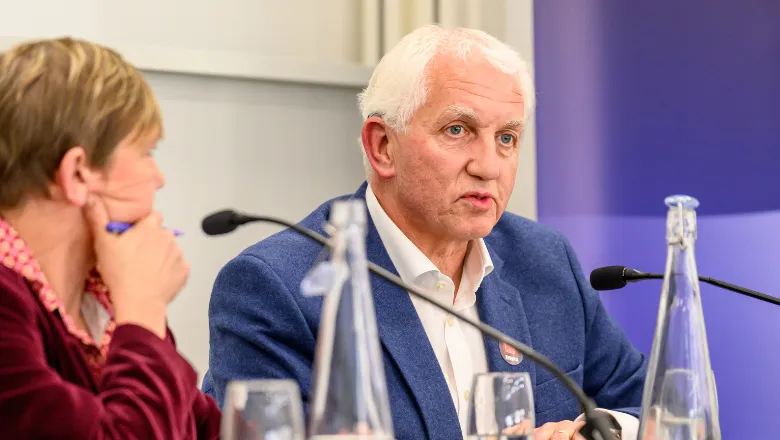
De-escalation & Communication
Dr Sophy Antrobus reiterated the change in emphasis to deterrence by denial, explaining, “We've had a lot of people saying de-escalation today, but related to that is communication, which is one of the ‘Cs’ of deterrence and I think that's an issue for defence.”
Dr Antrobus went on to highlight “I think defence over decades has become increasingly defensive, increasingly unhappy with proactively communicating. And I think that culture is going to be problematic for the communication piece of deterrence.”
Speaking from a US perspective, Professor Ryan Shaw added “I think a number of elements that the SDR calls for would be great for deterrence, but I can say the same thing for many of the strategic documents that have come out of both of our nations over the last couple of decades. The proof is not in what you put on paper, it's in doing what’s been said, and if we actually can make good on some of the commitments, particularly the increased spending and capability development. But that's a big ‘if’ on both sides of the Atlantic.”
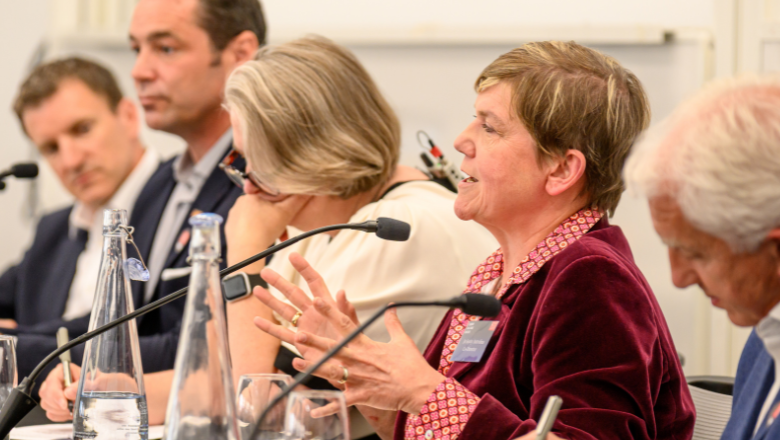
Industry insight
Industry’s response to the SDR was highlighted by Airbus’ Richard Budd, who provided insight on the actual logistical demands inherent in the SDR: “I think it's going absolutely in the right direction and the funding is the challenge. But actually, it's about having that industrial capability and putting it in place, and the whole overall overhaul of the procurement process and doing things at speed. You haven't got a deterrent unless you put it in place and put it in place in a timely manner. The challenge is actually just changing the behaviours so that you can procure and work together.”
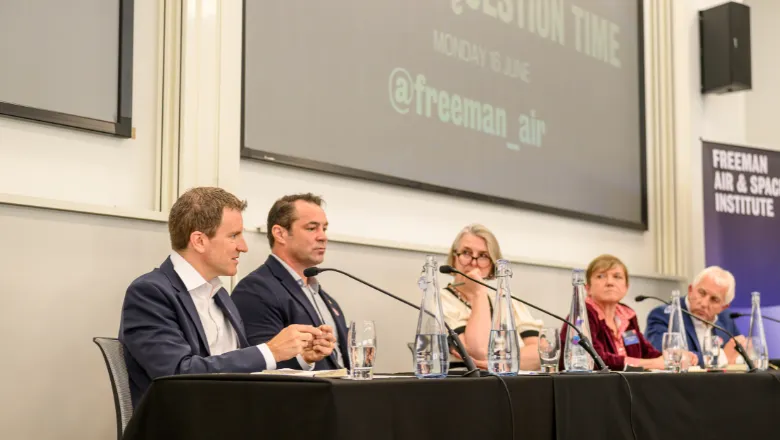
A “whole of society” approach
The panel went on to debate the SDR’s mention of building national resilience through engaging the “whole of society” and how this could be leveraged as a key contributor to credible deterrence. Dr Sophy Antrobus added “It's very ambitious. I think the document and the review argues credibly for the need for it, in order to deter. I won't fault [the SDR] too much for not putting in specific steps, I'm a bit disappointed about generally the lack of timelines, but I think it's such a big ask, and I don't think it's going to happen.”
Phil Osborn reflected on the approach, adding “What is now under probably systemic pressure is the ability of Whitehall to mobilise behind a clear strategic ambition. And I think what we see in Government is an inability, at the moment, to mobilize behind a strategic ambition. That manifests itself by an inability to, say, 3% by a certain time.” Concluding “I think the review is a good step to opening the country's eyes to a reality that you cannot avoid, and perhaps that's the difference today than five years ago.”
Welfare vs warfare
The discussion then moved towards the impact of Government spending on defence against a consistent backdrop of welfare challenges. Dr Sophy Antrobus noted her personal opinion: “It's spending more efficiently and doing things differently. It's proactively trying to get people's health better, but it's mainly around taxes, I should be paying more tax. I should be paying more tax towards defence.”
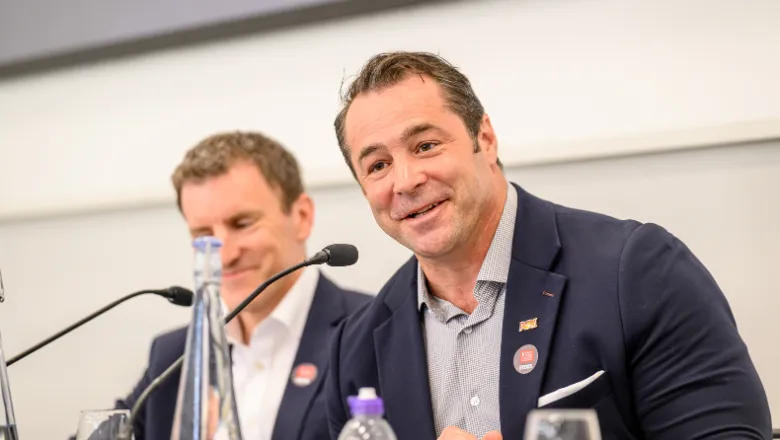
Defence Question Time came to a close with a question on global supply chains and sovereignty. The panel explored how, from an industrial perspective, the lack of clear definition within the SDR for future ‘sovereignty’, is halting the much-needed guidance for future procurement requirements.
Richard Budd explained “For me, true sovereignty is freedom of action. You’ve got the capability in the UK if you want to re-design, you've got the knowledge, the IPR, access to materials and industrial capability. It doesn't mean you don't buy anything from abroad, not 100% of everything has to be manufactured here, but for me, the real brains behind things does need to be here in the UK”
You can watch 'Defence Question Time' in full here:
The Freeman Air and Space Institute (FASI) sits within the School of Security Studies at King’s College London, providing independent and original research and analysis of air and space power issues.
To keep informed about the latest research, opportunities and events from FASI, subscribe to their mailing list or contact the team at FASI@kcl.ac.uk.


